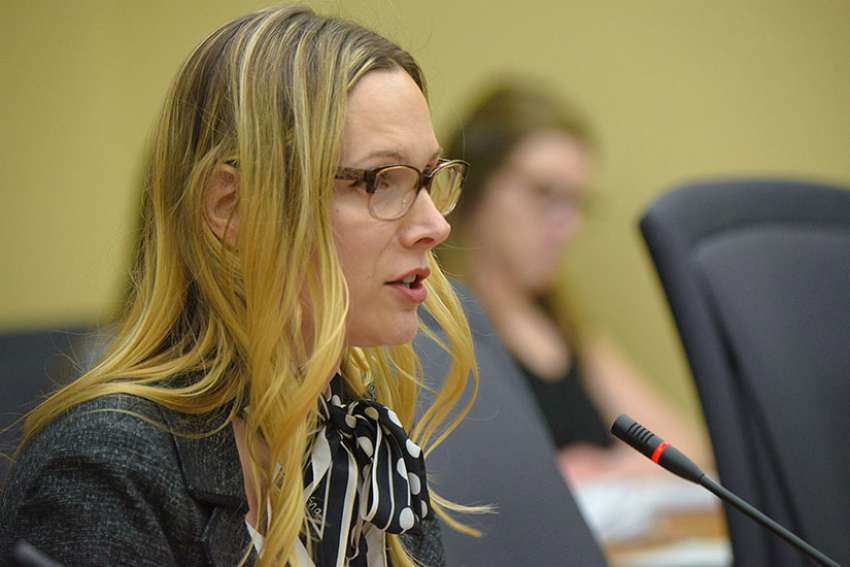I am a blood science specialist, stamped indelibly by the Krever commission into Canada’s tainted blood scandal. I know the dangers of system silence.
I am also a secular humanist, a vegan environmentalist and the daughter of East European immigrants.
Half a century ago and a decade apart, each of my parents fled a regime where the game was unanimity. Personal experiences explain why I cannot thread the needle of MAID (medical assistance in dying), and why I hope for conscience protection in this land that my parents came to when they sought freedom for themselves and their children.
I was turning 20 when my mother was dying. When I reflected on the sorrow we felt with her suffering, and the disappearance of future decades together, I thought that if a crystal ball had shown me what we were about to go through, I might well have shot the both of us before shedding the first tear.
But then I was so thankful for the blind and healing linearity of time, and for every moment in between. I also thought: If she had asked me to inject her with an agent endowed singularly with the property of arresting her heart, or to find someone else to give it, I could not do it, and I would be honest with her as to why.
After MAID was legalized, I realized that if I could not abet the suicide of the greatest love of my life, then I could not do the same for a stranger, whose place, in my own practice, I aim to position as reverently as that of my own kin. This is not out of arrogance but humility.
Some years later, I got married, and my spouse and I tried to become parents. For medical reasons, the ease with which life comes into the world was not ours to have. I say this sincerely: Life to me is a breathtaking miracle in this mad universe. I know what it is to lose it, to hurt and to fail to channel it. And I go to work every day, joining others on similar journeys.
But I fear my values may soon be held against me, when up to now they were an asset.
I am here to ask for two things: For patients to have the power to self‐refer and for their clinicians to have the right to conscientiously refrain from MAID‐related activity.
A care‐coordination service is a must. Some patients don’t have doctors. I will tell you practically: If “effective referral” is something that you think materializes quickly, think again. Patients considering MAID deserve no less than the same direct access and discretion afforded to others in the midst of their most private crises of reproductive or mental health.
As for conscience, the right to reasonably object to a procedure may percolate valuably into other areas. Conscience deserves respect. Conscientious objectors are not insulting our patients if patients are enabled to seek their own will.
Free conscientious objection is to MAID what peer review is to our science. It’s something that reveals flaws and coaxes improvements. This constructive dialogue brings vitality to a system striving for excellence.
Prohibiting dissent and permitting disciplinary actions by licensing colleges will do this: bake a North Korean-styled moral Darwinism into Ontario.
Only those who agree, and those too timid to disagree, will comprise what remains.
Without amendments, we face quantitative and qualitative corrosion of our health care workforce. Scores of patients could flounder after expulsions of health care workers who refuse to refer for MAID. Is that outcome preferable to the awkwardness of hinting at the sanctity of life?
I agree that clinicians must, and do, sacrifice a lot for our patients’ health. However, I don’t believe that this mandates that we collaborate in actions that can induce death.
Also, clinician well‐being is an essential pre-condition to best patient care.
How do we reconcile recent guidelines intended to limit exhaustion with a simultaneous policy that is a dismissal of our moral anxiety?
We cannot afford a policy which increases the chance of medical error, burnout, functional extradition or gagging the conscience which compelled many of us to dedicate our lives to the sick.
(Dr. Cserti‐Gazdewich is a transfusion medicine specialist and consultant hematologist with the University Health Network and an assistant professor at the University of Toronto.)


